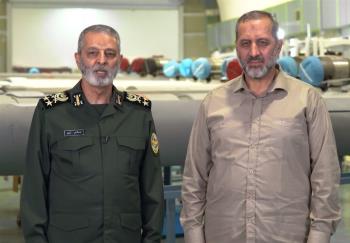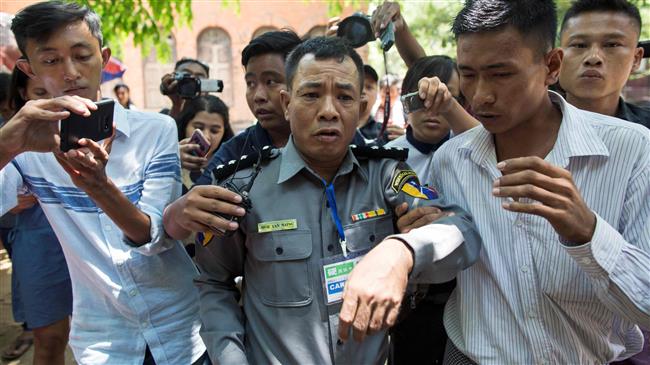Alwaght- Myanmarese regime reportedly evicted from police housing the family of a policeman who has testified at court how police planted secret documents on Reuters reporters to “entrap” them, who were covering state-sponsored violence against minority Rohingya Muslims.
Police Captain Moe Yan Naing on Friday testified that Reuters reporters Wa Lone, 32, and Kyaw Soe Oo, 28, had been set up by police officials, who wanted them incriminated over their coverage of a massacre of Rohingya Muslims.
On Saturday, Captain Moe’s family was evicted from police housing in the capital, Naypyitaw, in what appears to be retribution for the officer’s testimony.
“I got a phone call at 7 a.m. A police second lieutenant who I’m familiar with said, ‘Sister, you need to move out from the quarters,’” Moe Yan Naing’s unemployed wife, Tu Tu, 42, told local media group the Irrawaddy.
“He said, ‘You need to move out immediately.’ I said ‘is that so?’ and I become speechless. I didn’t know what to say,” she said in a video clip carried on the Irrawaddy’s Facebook page. “We are staff family. We don’t have a house yet. Where am I supposed to move with all these items?”
Tu, her two daughters, and one son, have now taken temporary shelter at the house of the policeman’s brother.
In his court testimony, Moe gave details of how the police had arranged a “set up to entrap” the reporters who were covering a massacre of 10 Rohingya men, who were summarily executed by government soldiers in Inn Dinn Village in western Myanmar on September 2, 2017.
The journalists themselves had said in a news conference late last year that police had framed them by giving them “two rolled papers” at a restaurant and immediately arresting them afterwards. The papers were top-secret government documents.
The Inn Dinn Village massacre was only one instance of violence taking place on a massive scale against the Rohingya Muslim minority in Myanmar’s western Rakhine State.
The military has blockaded the state since late 2016.
In the absence of the media, thousands of Muslims were killed, wounded, or raped, and their houses and villages were torched, according to witness accounts by the hundreds of thousands of the Muslims who have managed to flee to neighboring Bangladesh.
There, international medics have said examinations on the displaced Rohingya verify their accounts of violence, including rape.
Backed by regime, the Myanmarese military and Buddhist extremists launched a heavy-handed crackdown against the Muslim minority in Rakhine State in late 2016. That campaign intensified in August 2017.
Myanmarese troops have been committing killings, making arbitrary arrests, and carrying out arson attacks in Muslim villages in Rakhine.
About 700,000 Rohingya Muslims have fled the western state to Bangladesh since last August.
Before the campaign of violence, which killed many and drove almost all of the other Muslims out, the Rohingya had lived in Myanmar for generations but were denied citizenship and branded illegal immigrants from Bangladesh, hence the word “Bengalis.”
The UN has described the Muslim community as the most persecuted minority in the world.



























